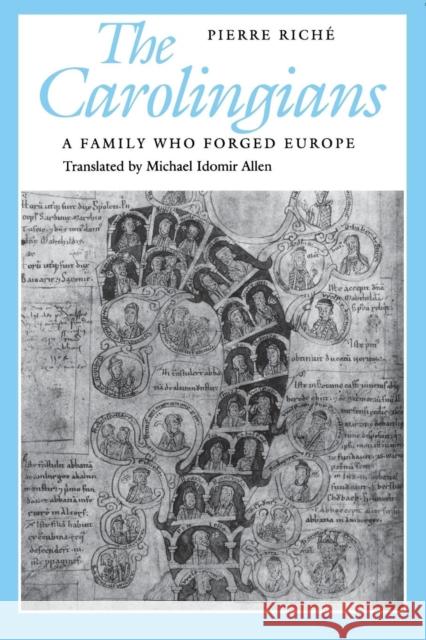The Carolingians: A Family Who Forged Europe » książka
The Carolingians: A Family Who Forged Europe
ISBN-13: 9780812213423 / Angielski / Miękka / 1993 / 424 str.
Pierre RichE traces the emergence of Europe from the seventh to the early eleventh century, the period that witnessed the rise, fall, and revival of the Carolinian Empire. It was during this time the first contours of a broad new civilization and the first visible signs of European unity are discernable. Until the seventh century Europe was simply a geographic term; as Isidore of Seville defined it, Europe was "the space that extended from the river Don to Spain and the Atlantic." By the ninth century, however, Europe had gradually acquired a collective being with a shared identity. The political, cultural, and spiritual activity of laymen and churchmen had fostered the creation of a common European fold, which stretched from the Atlantic to the Vistula, and the plains of the middle Danube. The transformation was due in large part to the Carolinians, their relations, and their allies, who together became the masters of Gaul and then much of the West. RichE traces the destiny of the Carolingians and the parallel history of Europe, stressing the roles of the leaders who imposed themselves by force, diplomacy, and culture.
Pierre Riché traces the emergence of Europe from the seventh to the early eleventh century, the period that witnessed the rise, fall, and revival of the Carolinian Empire. It was during this time the first contours of a broad new civilization and the first visible signs of European unity are discernable.Until the seventh century Europe was simply a geographic term; as Isidore of Seville defined it, Europe was "the space that extended from the river Don to Spain and the Atlantic." By the ninth century, however, Europe had gradually acquired a collective being with a shared identity. The political, cultural, and spiritual activity of laymen and churchmen had fostered the creation of a common European fold, which stretched from the Atlantic to the Vistula, and the plains of the middle Danube.The transformation was due in large part to the Carolinians, their relations, and their allies, who together became the masters of Gaul and then much of the West. Riché traces the destiny of the Carolingians and the parallel history of Europe, stressing the roles of the leaders who imposed themselves by force, diplomacy, and culture.











